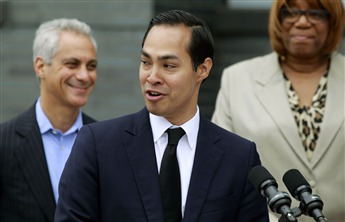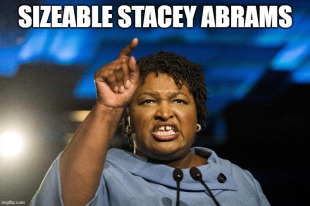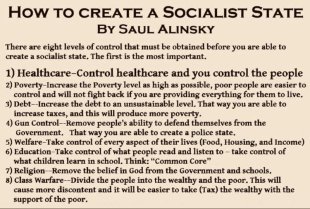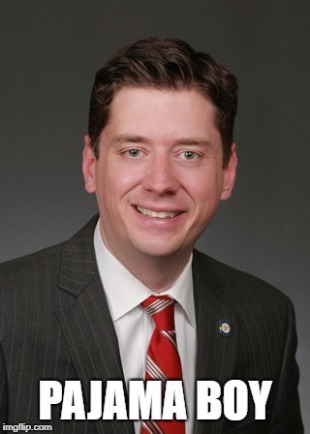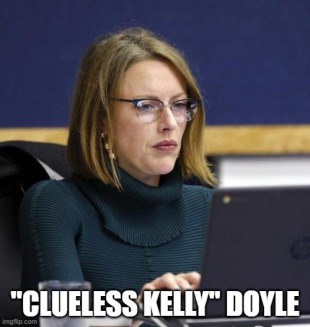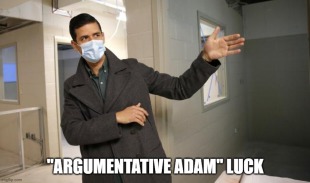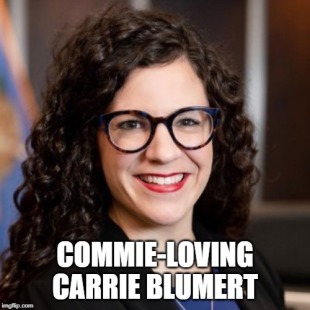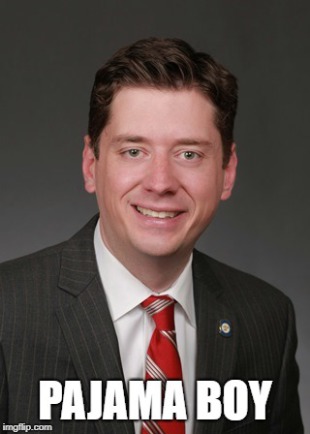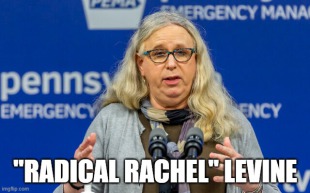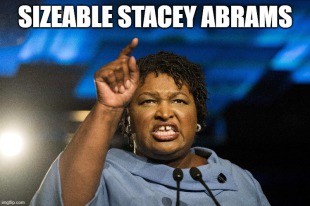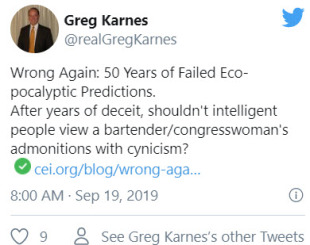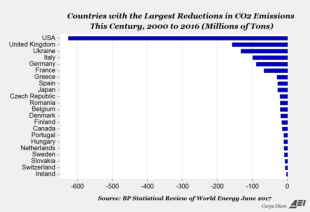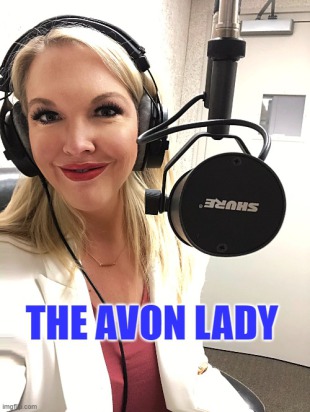One reason for the high cost of housing in California may surprise you — overregulation https://t.co/E3u63HMlE6
— Greg Karnes (@realGregKarnes) July 10, 2019
September 21, 2017
Truck driver: Government decides when I work, eat and sleep
Matthew Garnett speaks out about regulations
February 18, 2017
Dodd-Frank ensures that the next financial crisis will be worse.
December 17, 2016
June 8, 2016
Restricting Natural Gas Exports Harms the Economy
By 2040, natural gas exports could generate $1.6 trillion in trade revenue, increase worker earnings by $110 billion, and raise $118 billion for the federal government. The economic benefits of natural gas exports far outweigh the justifications for existing policy, which requires potential exporters to go through an outdated, lengthy, and convoluted approval process where approval is contingent upon an undefined “public interest.” In the United States’ post-energy revolution, where natural gas production is skyrocketing, these rules make little sense, and policymakers should address them as soon as possible to avoid a losing out to competitive emerging producers
June 3, 2016
How Zoning Rules Are Helping Houston Overtake Chicago As America’s 3rd Largest City
Chicago’s population is shrinking, according to data released May 19 by the U.S. Census Bureau. Between 2000 and 2015, the difference between the two cities’ populations halved. If trends continue, Houston, Texas, will become America’s third-largest city in just a decade. Without doubt a big part of the reason is Illinois’ sluggish economic growth and Springfield’s budgetary problems. But there’s another reason for Houston’s success: the city’s unique approach to zoning, which makes housing more affordable and abundant.
May 4, 2016
Final Obamacare Calorie Rule Includes 171-Word Definition of Menu
April 26, 2013
The Cumulative Cost of Regulations
Economic growth in the United States has, on average, been slowed by 0.8 percent per year since 1980 owing to the cumulative effects of regulation. If regulation had been held constant at levels observed in 1980, the US economy would have been about 25 percent larger than it actually was as of 2012. This means that in 2012, the economy was $4 trillion smaller than it would have been in the absence of regulatory growth since 1980. This amounts to a loss of approximately $13,000 per capita, a significant amount of money for most American workers.
April 19, 2016
Governing by Blog Post? Report Finds Obama Administration Creatively Imposing New Federal Rules
March 9, 2016
Regulating Real Problems - The First Principle of Regulatory Impact Analysis (From Jerry Ellig, James Broughel, Spencer Bell – Mercatus Center)
When analysts identify a real problem, measure its scope, and trace it back to a root cause, regulators have a better chance of accomplishing their goals. Executive Order 12886 was implemented precisely to ensure that this kind of rational decision-making occurs before regulations are enacted that force the public to expend real resources.
When analysts fail to identify and evaluate the problem they are trying to solve, regulators are more likely to respond to anecdotes rather than to widespread problems, and to address symptoms of problems rather than their root causes. This is akin to mopping up a wet floor every evening when the real problem is a leaky roof. To be effective at their jobs, regulators need to know what causes the problems they seek to solve.
March 4, 2016
Fuel Economy Standards Are a Costly Mistake (From Salim Furth and David W. Kreutzer – The Heritage Foundation)
Corporate Average Fuel Economy (CAFE) standards are adding thousands of dollars to the prices of new cars. When the Obama Administration began implementing Congress’s stricter CAFE standards in 2009, scholars predicted that the standards would cost consumers at least $3,800 per vehicle. Vehicle prices, which had been falling, began rising in 2009 and have not stopped. The average vehicle now costs $6,200 more than if prices had followed their previous trend. Prices will continue to rise, by at least $3,400 per car through 2025, unless this costly policy mistake is undone.
December 19, 2015
Mapping Washington’s Lawlessness 2016: A Preliminary Inventory of “Regulatory Dark Matter”
September 17, 2015
FDA’s Guidance to Help Restaurants Comply With Calorie Rule As Confusing As Ever
This appears to be a document that only some true Karl Marx-loving, nimrod federal bureaucrats could assemble!! For example, they even assert that a restaurant coupon should be considered a menu !!
In addition, the definition for “restaurant-type food” is lengthy, beginning with “Food that is usually eaten on the premises, while walking away, or soon after arriving at another location.”
The definition continues: “It may either be: (a) served in restaurants or other establishments in which food is served for immediate human consumption (such as food traditionally sold in restaurants), or sold for sale or use in such establishments (such as bulk items used to prepare restaurant foods); or (b) processed and prepared primarily in a retail establishment, ready for human consumption, of the type described in (a) of this paragraph and offered for sale to consumers but not for immediate human consumption in that establishment and not offered for sale outside that establishment.”
September 01, 2015
How Democrats Stifle Labor Markets (From Hoover Institution - Richard A. Epstein)
The National Labor Relations Act of 1935 (NLRA) introduced a major revolution in labor law in the United States. Its reverberations are still acutely felt today, especially after the recent, ill-thought-out decision in the matter of Browning Ferris. There, the three Democratic members of the National Labor Relations Board overturned well-established law over the fierce dissent of its two Republican members. If allowed to stand, this decision could reshape the face of American labor law for the worse by the simple expedient of giving a broad definition to the statutory term “employer.”
Due to extreme government regulations, Carl’s Jr, has to wait 285 days to open a new restaurant in Los Angeles verses 125 days on Karl Marx Prospect in Siberia !!
Corporations based in California, including Silicon Valley sweethearts eBay, PayPal and Google, are increasingly employing their capital where labor and the cost of doing business are cheaper. The ultimate victims are middle-class entrepreneurs, like restaurant managers, and the low-skill workers they employ.
July 02, 2015
Salaried Overtime Requirements - Employers Will Offset Them With Lower Pay (From Heritage Foundation – James Sherk)
The Obama Administration has announced plans to require overtime pay for salaried employees who earn less than $50,440 a year—despite the fact that economic research shows that employers will offset new overtime costs by lowering base salaries. These regulations will have little effect on total weekly earnings or hours worked; they will require employers to rigidly monitor salaried employees’ hours. This would proscribe the flexible working arrangements that many salaried employees value. These regulations will limit workplace flexibility without improving pay. Expanding overtime regulations to more salaried employees will hurt the workers the White House intends to help.
July 01, 2015
The Nanny State Is Expanding—And Private Property Rights Are Decreasing (From Public Interest Institute – Deborah Thornton)
The repercussions to private-property owners and small businesses of federal government overreach with Housing and Urban Development and Affirmatively Furthering Fair Housing rules are significant. As soon as one becomes involved with and receives any government funds to implement a project or improve one’s business or home, you will fall under the regulatory governance of HUD and the AFFH and must meet their standards. The only way for Iowa cities, towns, property owners, and small businesses to avoid being impacted in this way is to not take the money.
June 8, 2015
Feds: Tranny Bathroom Choice a Matter of ‘Health and Safety’
Department of Labor tells private sector to base bathrooms on gender identity
(This appears to be getting way out of hand. Perhaps the Federal government should just F.O. when it comes to telling private businesses how to handle their restroom facilities !! Taxpayers actually have to pay federal bureaucrats to produce this garbage ?? They would appear to have entirely too much time on their hands !!)
May 20, 2015
The U.S. Department of Stagnation?
Peter Thiel—entrepreneur, venture capitalist, hedge fund manager and Silicon Valley icon—understands the essence of progress. In his provocative new book, “Zero to One,” Thiel emphasizes that the key to America’s continued economic success is “vertical” or “intensive” advances marked by innovation, rather than “horizontal” or “extensive” progress. Important new technology trends come, Thiel believes, from new entrepreneurial ventures. “From the Founding Fathers in politics to the Royal Society in science to Fairchild Semiconductor’s ‘traitorous eight’ in business,” Thiel writes, “small groups of people bound together by a sense of mission have changed the world for the better.” Thiel’s arguments are starkly illustrated in the realm of biotechnology, where government regulations have for years prevented or delayed such innovation—and the economic growth spawned by it.
April 29, 2015
What You Need to Know About the EPA/Corps Water Rule: It’s a Power Grab and an Attack on Property Rights
In April 2014, the Environmental Protection Agency and the Army Corps of Engineers published a proposed rule that defines what waters are covered under the Clean Water Act (CWA). This rule, often referred to as the “Waters of the United States” (WOTUS) rule, could cover almost any type of water, giving the two agencies far greater power than authorized under the CWA. There are four key points that should be known about the proposed rule: (1) it is extremely broad; (2) it is an attack on property rights; (3) it exceeds the broadest interpretation of Supreme Court precedent on CWA jurisdiction; and (4) it was developed through a flawed process. Unless Congress acts, this proposed power grab could soon become a reality. Congress should require that the agencies withdraw the rule, and then Congress must define what is meant by “waters of the United States.”
April 16, 2015
93 Power Plants in Danger from EPA’s Climate Rule
According to the Environmental Protection Agency’s (EPA) own estimates, its proposed power plant regulation could eliminate one-fifth of existing coal generation facilities and 80,000 energy jobs. The regulation, set for final publication this summer, would regulate emissions at existing coal and natural gas power plants, while also ensuring that consumers use less energy from coal facilities. This means that more than 90 coal-fired power plants could be retired across the country. Secondary employment impacts suggest that EPA’s power plant regulation could eliminate 296,000 jobs, about the population of Cincinnati, Ohio and more than the total number of jobs the economy created in February 2015.
April 03, 2015
EPA’s Unprecedented Power Grab
Once approved by Environmental Protection Agency (EPA), the state plans which they must submit to the EPA would result in a massive expansion of EPA's enforcement authority, particularly extending that enforcement authority, and its onerous penalties, into areas that do not fall within EPA's regulatory purview. The imposition of a federal plan is another grave concern. The Clean Power Plan is simply a power grab motivated by the desire to eliminate the economic advantages of competitive states through federal rules meant to impose an uncompetitive regulatory baseline on everyone. As soon as the rule is adopted, Congress should use its power under the Congressional Review Act to kill the rule with a veto-proof resolution of disapproval. In the meantime, Congress should undertake the long-overdue task of amending the Clean Air Act and severely curtailing EPA's ability to embark on fantastical experiments in Soviet-style central planning.
Adobe Acrobat document [250.4 KB]
March 31, 2015
EPA Overreach Will Shrink Florida’s Economy
There are a variety of mechanisms in place to push the Environmental Protection Agency to withdraw these proposed rules stemming from the Clean Water Act before they become final. Florida’s congressional members can engage in aggressive oversight of the rulemaking process. They can even use the Congressional Review Act to pass a resolution of disapproval in regards to either rule. And finally, if the Army Corps of Engineers and EPA do not withdraw the rules as presently drawn, then Floridians should expect groups to file suit to stop these illegal and unconstitutional arrogations of power.
Adobe Acrobat document [100.4 KB]
February 20, 2015
Feds: America Should Adopt ‘Plant-Based’ Diet
Dietary Guidelines Advisory Committee calls for taxing dessert, ‘electronic tracking’ of time spent watching TV
(It would appear that in order to secure a government job these days, one must have a strong desire to control the lives of everyday Americans !!)
Adobe Acrobat document [10.8 MB]
January 27, 2015
Regulatory Analysis and Regulatory Reform: An Update
Regulatory impact analysis assesses the need for, alternatives to, and benefits and costs of proposed regulations. Although administrations of both political parties have required regulatory impact analysis, the quality of that analysis has generally been low. To make matters worse, agencies often fail to provide any evidence that regulatory analysis, however imperfect, informed their decisions. In addition, agencies rarely establish plans for retrospective analysis to evaluate the effectiveness of their regulations. To be genuinely effective, regulatory impact analysis should be required by statute, objective, and used by federal agencies.
Adobe Acrobat document [1.4 MB]
January 25, 2015
Solving the Puzzle of Stagnant Wages
Evidence points to growing government regulation like Dodd-Frank and policies that discourage investment.
Adobe Acrobat document [837.3 KB]
January 7, 2015
Cigarette Taxes and Smoking
While smoking has declined as a result of the tax, our recent study shows that the “core” of smokers that remains after the multiple recent tax increases is less responsive to price increases than commonly assumed. As a result, the public health argument to justify additional cigarette taxes is less valid today. Indeed, back-of-the-envelope calculations suggest that cigarette tax increases are not a cost-effective way to improve health according to conventional guidelines. Cigarette taxes also represent a non-trivial burden on low-income families’ budgets.
Adobe Acrobat document [3.2 MB]
January 6, 2015
Lachlan Markay and Dana Loesch Discuss Impact of New Obama Regulations
December 02, 2014
Nondiscrimination on the Basis of Disability by Public Accommodations-Movie Theaters
This comment addresses, from an economic point of view, the efficiency and efficacy of the Department of Justice’s (DOJ) proposed amendments to Title III of the Americans with Disabilities Act of 1990 (ADA). Specifically, it examines how the relevant rule may be improved by more closely examining the societal goals the rule intends to achieve and whether this reconsideration will successfully achieve those goals. In many instances, regulations can be substantially improved by choosing more effective regulatory options or more carefully assessing the actual societal problem.
Adobe Acrobat document [110.0 KB]
November 25, 2014
Primer: Overtime Pay Regulation
With upcoming rules, the Department of Labor will specifically try to help workers by raising the salary level test, which is the minimum weekly salary necessary to exempt a worker from overtime pay. A close examination of those impacted by the changes, however, reveals that very few will benefit and only a very small percentage of those affected are actually in poverty. That is because most salaried employees who work more than 40 hours each week actually earn more than any feasible new salary level test. Moreover, expanding overtime pay coverage will help very few children, mainly benefiting working men. With the additional cost created by overtime pay regulation, it is clear that expanding overtime pay is not an effective way to help those in need. Instead, policymakers need to address the root causes for stagnant wages: lackluster economic growth and a struggling labor market.
Adobe Acrobat document [2.0 MB]
November 19, 2014
The U.S. Army Corps of Engineers and Environmental Protection Agency’s Proposed Definition of “Waters of the United States”
If finalized, the proposed redefinition of “waters of the United States,” particularly the proposed definitions of “tributaries,” “adjacent,” and “other waters,” will significantly expand their jurisdiction. Such an expansion would subvert the principles of federalism, rights to property, and individual liberty, in addition to violating the Clean Water Act itself. The proposed rule should be scrapped, and the various Agencies involved should draft a new proposal that conforms to the limits of their authority, that provides much-needed clarity to citizens and regulators, and that respects and strengthens rights to property.
Adobe Acrobat document [200.2 KB]
November 13, 2014
Higher Wages, More Jobs and Business Growth Due to State Moratorium on Regulation
Although there are several regulatory reform options in every administration’s toolbox, evidence reveals that there are few ill effects from adopting a moratorium on new rules. With the chance to create 15,600 jobs in the average state and generate $129 million in higher wages, placing sensible limits on regulation could spur modest economic growth.
Adobe Acrobat document [1.1 MB]
November 04, 2014
Repealing Dodd-Frank and Ending “Too Big to Fail”
The 2008 crisis led to the “Great Recession” from which the nation is still recovering. Despite the slow economic rebound, many critics still try to blame these events on the supposed failure of the free market. They claim a lack of regulation caused the crisis and the federal response vindicates government’s role in the economy. But government bailouts designed to preserve a few irresponsible and overextended companies came at the expense of the taxpayer, and with the consequence of punishing other banks and financial institutions with egregious regulations that only increase the danger of financial crises. Congress can ensure taxpayers will never bail out large institutions or their creditors. Institutions that fail should be allowed to wind down through an orderly bankruptcy process. Fannie Mae and Freddie Mac should be shut down and the housing market made more stable by relying on private financial firms that are not backstopped by taxpayers.
Adobe Acrobat document [158.9 KB]
October 31, 2014
Regulation: Killing Opportunity
During its first five years, the Obama Administration aggressively exploited regulation to get its way. Issuing 157 new major rules at a cost to Americans approaching $73 billion annually, this Administration is very likely the most regulatory in U.S. history. And there are many more regulations to come; agencies have identified 120 additional major rules they intend to work on, including dozens linked to the Dodd– Frank financial regulation law and Obamacare. Of particular concern is that the Federal Communications Commission has launched yet another attempt to regulate Internet traffic. Congress—which shares much of the blame for enabling this flood of red tape—must stem it.
Adobe Acrobat document [174.6 KB]
October 23, 2014
Are EPA and the Army Corps Navigating New Waters with Their Controversial Proposal?
The lack of clarity regarding certain newly defined terms is problematic for the regulated community and for environmentalists alike. And the expanded scope of jurisdictional waters is equally frustrating to stakeholders. While the finalized version of the rule will certainly be challenged in federal courts, the more clarity the agencies can incorporate prior to finalization the more likely a workable rule will result.
Adobe Acrobat document [340.0 KB]
Trying to limit the burning of fossil fuels can only make energy more scarce and expensive. That has real negative consequences, especially for the poor:
October 09, 2014
The Push for State-Controlled Media
If the country is more polarized, it is largely because Americans are allowed to hear more than the one side of issues that CBS, NBC, and ABC were willing to provide. As a result, the Left wants to strike back in the only way they know how: government regulation.
Adobe Acrobat document [324.8 KB]
September 22, 2014
September 12, 2014
Occupational Licensing
Over-burdensome licensing regulations reduce consumers’ options, leaving them with fewer choices and higher prices. Workers are also affected, facing costly requirements such as passing government-determined schooling and tests and paying fees before they can begin earning a living. Female-dominated industries face some of the biggest (and most irrational) licensing regimes, and the barriers are often greatest for low- and middle-income job-seekers, which means that licensing regimes often keep financially vulnerable people from beginning their climb up the economic ladder.
Adobe Acrobat document [577.6 KB]
September 9, 2012
August 28, 2014
It is remarkable but true that nearly 35 years after President Reagan established what has proved to be an enduring national commitment to cost-benefit analysis, state and local governments have shown inadequate and at most sporadic efforts in following the federal government’s lead. Those inadequate efforts are especially surprising in light of the fact that state and local governments pass laws and ordinances that are so often costly and burdensome for their local economies—and have consequences that can reach beyond city limits and state lines. The federal government has provided an imperfect but proven model for regulatory review. Given the harm that ill-conceived regulations can inflict on a struggling economy, there is no reason for state and local governments to wait any longer to set up their own review agencies.
Adobe Acrobat document [257.5 KB]
July 31, 2014
Operation Choke Point: What It Is and Why It Matters
Can the government shut down legal but politically disfavored businesses? The Department of Justice, Office of the Comptroller of the Currency, and Federal Deposit Insurance Corporation are colluding on an operation that is ostensibly aimed at reducing the chances of Americans falling victim to fraud in a variety of “high-risk” industries, predominantly payday lending. It uses existing regulatory powers to provide heightened supervision of banks that do business with these industries. Dubbed “Operation Choke Point,” this undertaking is worrisome for a number of reasons – there is nothing illegal about most of these industries, but because they have been deemed high-risk, banks are cutting ties with them. This opens an entirely new avenue for abusive regulation – a conservative administration, for instance, could just as easily cut off the financial lifeblood of medical marijuana dispensaries or abortion clinics. Until that potential for abuse is curbed, Congress should deny funding to Operation Choke Point.
Adobe Acrobat document [846.3 KB]
January 17, 2014
This year regulators published $112 billion in net regulatory costs, including deregulatory measures. They added 157.9 million paperwork burden hours, according to the daily tally from the Office of Information and Regulatory Affairs (OIRA). At the beginning of 2013, the American Action Forum predicted $123 billion in regulatory costs, or 8 percent from the actual figure. Adding more than $112 billion in new burdens is a stark reminder that current attempts to reduce regulatory costs are wanton. With more than $87 billion in proposed rules in 2013, likely to be finalized in 2014, burdens will continue to escalate. The final implementation push of Dodd-Frank and the ACA, and the first attempt to regulate greenhouse gas emissions from existing stationary sources will only add to the nation’s cumulative regulatory tally. Looking forward to 2014, AAF has already predicted $143 billion in possible regulatory costs.
Will increased government regulations dampen job growth?
A_Regulatory_Flurry2013.pdf
Adobe Acrobat document [704.3 KB]



